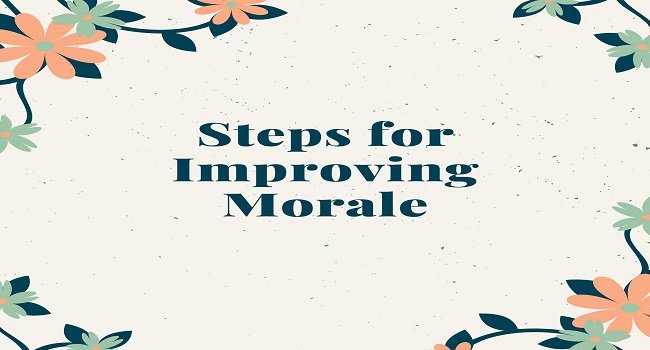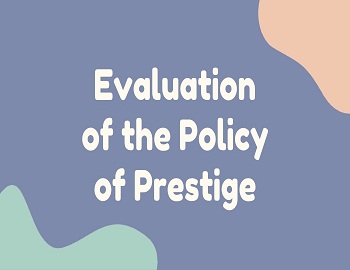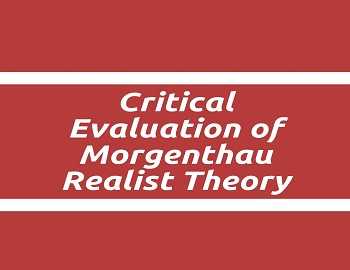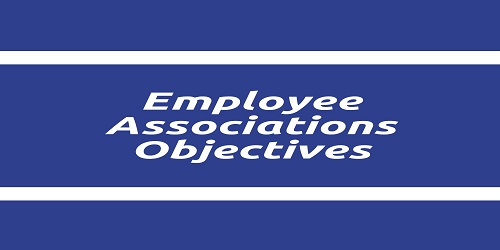Steps for Improving Morale:
High morale is an essential requirement for the efficiency of administration. An administration run by employees with low morale can be rarely successful in attaining its assigned goals effectively and efficiently. Every organization, therefore, must undertake several essential steps for keeping the level of morale high. It has to consciously and steadfastly work for securing this condition as without it, the process of attainment of its goal can get paralyzed. For raising the morale of the employees, an organization has to take several steps:
- Maintenance of proper public relations programmes.
- Securing healthy employer-employee relations.
- Undertaking periodic surveys of the attitudes of employees.
- Initiation of remedial measures based on the findings of the surveys.
- Organizing and maintaining an effective and continuous communication system.
- Adoption of a broad-based reward system for good work being done by the employees and similar measures.
Dimock suggests the falling factors that help in morale building in public service:
- Morale is higher among employees who are treated in a humane way.
- There is a close relationship between the amount of work done and the pride felt by the workers doing it.
- The type of work and the size of the workgroup also are factors of morale-building.
- A high level of motivation of the employees.
Referring to the factors which must be taken care of for increasing the morale of the employees, Prof. L. D. White remarks “Morale is related to personal loyalty. Successful executives inspire devotion among their subordinates… the quality of fairness towards the staff on the part of the leader is of cardinal importance. It is fatal to morale to play favorites for political, religious, or personal reasons or to be suspected thereof.”
The following can be suggested as the main measures which can be suitably used for morale building.
(1) Job Satisfaction- The personnel policy should make jobs as interesting and satisfying as possible. Job satisfaction is a basic ingredient of high morale. It encourages favorable group action which strengthens and develops high morale.
(2) Job Training- Proper and adequate job training also helps in holding up the employees’ morale. Pre-entry education and training in the work as well as in the expected standards of work culture and efficiency can make the employees conscious of their expected roles. They must be told the history of the organization with an emphasis upon the positive side. They should be encouraged to be innovative, positive, and healthy in their attitudes toward their service. They should be given adequate in-service promotional opportunities. Organization of review conferences can help the employees to exchange information and share experiences. This can encourage a sense of belongingness and participation among the employees. It can increase their morale and consequently their efficiency.
(3) Opportunities, particularly Promotional Opportunities- Promising opportunities like good promotional avenues, healthy working conditions, satisfactory remuneration, and other facilities for career development are factors that can boost the morale of the employees. Each employer must get a fair chance to satisfy his aspirations for promotion. The promotion policy must be sound and based on seniority-cum-merit. Limited promotional opportunities always dampen the morale of the employees and they get easily bored with their work.
(4) Facilities- Facilities like transport, housing, health, family welfare, education for the children of the employees, etc., also help in building up the employees’ morale. The availability of such facilities, particularly when they are linked with progressive promotions, tends to encourage the employees to work efficiently and devotedly for getting more promotions and more facilities. This in turn becomes a source of hire morale.
(5) Recognition of Aspirations- Recognition of the aspirations and goals of the employees and definite provision of means by which such goals can be achieved always go a long way in boosting morale. The organization must provide ways and means for enabling the employees to satisfy their legitimate aspirations.
(6) High Quality of Supervision- The confidence in the impartiality, integrity, and good intentions of the supervisor is an important factor in building-up of the morale of the employees. The employees having faith in their superiors always act more willingly than when their supervisors are partial, weak, and formal.
(7) Stimulating Leadership- Organizational leadership should be itself disciplined, dedicated, efficient, alert, and humane. No team can hope to win without a good captain, a good manager, and a trained and expert coach. They play a big role in knitting the players into a team and in the inculcation of team spirit. Likewise, good leadership is a sine quo non for welding the employees into a team characterized by a bond of togetherness, a sense of belonging, a spirit of participation, determination to score goals, and a high level of morale. It may be said that good and effective personal management and healthy personnel practices are the chief instruments for building-up morale. These can inspire confidence among the employees and create an environment characterized by hope, faith, and courage. A healthy personal environment is a crucial factor that ensures high morale in the organization. Morale like health, grows slowly and imperceptibly. It has to be worked for, nurtured, and secured through conscious efforts keeping in mind the above-discussed factors. Continuous, consistent, and systematic efforts are always needed for keeping the morale of the employees higher.









Comments (No)